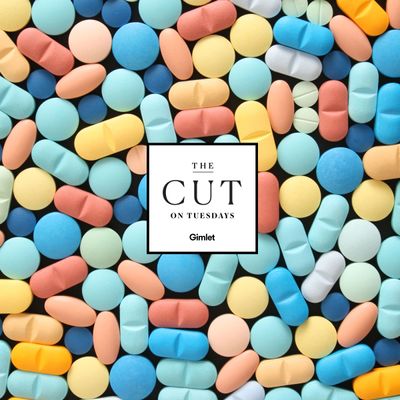
The Cut on Tuesdays
Subscribe on:
This week’s podcast is a look at what happens when we take abortion into our own hands–and one woman who’s been helping people around the world do just that is the Dutch doctor Rebecca Gomperts.
Rebecca started Women on Waves in 1999. The project was a ship-board mobile clinic that visited countries with restrictive abortion laws to provide the drugs mifepristone and misoprostol.
Rebecca: We used a ship that can go to international waters from countries where abortion is illegal, take women onboard, and then they can get the abortion pills in international waters and we bring them back. The first ships were big and we had a mobile clinic that was designed by an artist. But in order to swallow a pill, you don’t need a clinic. So in 2008 we started using a sailing yacht. We could take five to seven women at a time.
In 2005, Rebecca translated the mission of Women on Waves into Women on Web. It’s a site that provides online medical consultation and affordable pills — priced on a sliding scale — to women in countries without legal abortion. And Women on Web had been getting messages from people needing abortions the United States for a while, but they’d always focused on countries where the situation was more dire. Last year, though, Rebecca decided she needed to do something. So she started a new organization, Aid Access, specifically to help people in places like America.
Rebecca: I founded Aid Access a year ago exactly, in order to be able to help women that I knew were in need but that didn’t fall really in the group that Women on Web is focusing on. And then on March 8 I got a letter from the FDA ordering me to cease with my work.
Rebecca had expected anti-abortion backlash when she started working in America. But getting a letter from the FDA was weird. The FDA doesn’t regulate doctors — and they definitely don’t regulate doctors in Austria, where Rebecca is now based.
Rebecca: I’m a doctor. I work under my jurisdiction. I’m allowed to write these prescriptions and the women can fill these prescriptions by a pharmacy where that can be done. And actually it’s my duty as a doctor when people in need of care and medical care reach out to me. I have the duty to help them if I can. And that’s what I’m doing. That’s that’s what I will continue to do and that’s what I’m doing.
Rebecca has continued her work. When we asked the FDA whether they were going to do anything about it, they told us they couldn’t comment on potential future actions, but that they remained concerned that Aid Access was bypassing, quote, “important safeguards designed to protect women’s health.”
A little while after the FDA sent their letter to Rebecca, 118 members of Congress sent a thank-you note to the FDA commissioner. All but one of them were Republicans. And only ten of them were women … or, fewer than the total number of Jims, Mikes, and Steves.
In the face of opposition, Rebecca needed a lawyer — someone to advise her on legal issues in U.S. — and some American abortion-rights activists put her in touch with Richard Hearn, who was willing to help her pro bono. Richard told us that when he looks at the work Rebecca is doing, he sees an unstoppable force.
Richard: Aid Access is, in my view, the biggest threat to the pro-life movement in the United States. That there’s ever been or likely will be. And in my view, Aid Access or something similar will make abortions, especially early abortions, accessible for all women regardless of circumstances in the United States. The government will be unable to stop Aid Access or other groups. They’re going to lose. In the course of time, they are going to lose.
To hear more about Rebecca — and about others working to protect abortion access — click above, and subscribe wherever you listen.

